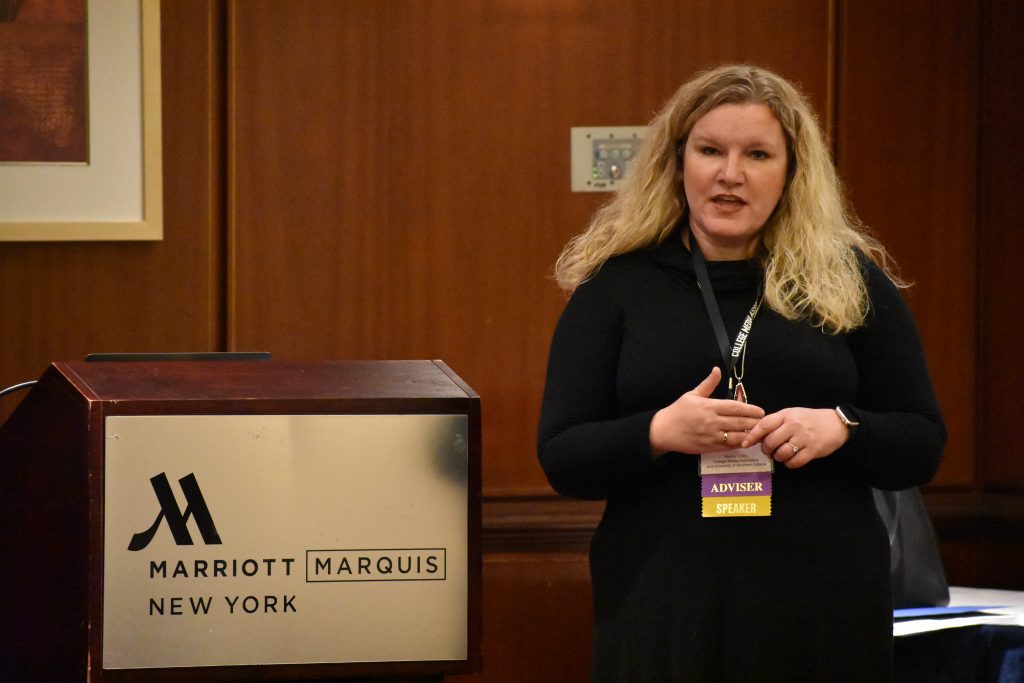Author: Danielle Birzer
CMA President Leads First Trauma Reporting Session “Reporting on Traumatic Events”
Danielle Birzer
Traumatic situations are a part of daily life. Be it pandemic, natural disaster, crime cases, mass shootings, etc., journalists are often part of the first responders team there to inform the public about the situation that’s just taken place. The problem? Most journalists never receive appropriate situational training in order to process, report on, and personally manage a traumatic scenario.
CMA President and journalism professor Kenna Griffin is very passionate about trauma in journalism and studying the intersections between the two. It is because of her passion that CMA is offering a Trauma Journalism Certification for the first time.

Taken March 12, 2020.
Photo credit: Danielle Birzer.
“You could be covering sports, business, theatre…you are going to cover traumatic events. It’s an inevitable part of our profession…Journalism is a traumatic profession and it needs to be treated in the same way tha you would treat counseling and emergency management,” says Griffin.
Journalists are on average 80% more likely than other working professionals to be exposed to traumatic situations. Besides the factor of personal exposure, media professionals are required by nature of their job to speak with the victims of said trauma which can necessitate sensitive nuances in order to handle the situation appropriately.
Griffin recommended the following:
- Allow the victims to talk. Talk therapy is very real and necessary, and interviewing opportunities can allow for that.
- If a person says no to being interviewed, let it go. Don’t bully your way into interviewing anyone.
- In cases of interviewing individuals who are victims of sexual assault, allow them to lead the conversation.
- Verify and check victims’ names, facts, spelling, etc. Do your due diligence because the little things matter.
- Don’t judge victims. Individuals respond to trauma in a myriad of ways.
- At the end of the day, be comfortable with what you’ve done and the story you’ve written.
To learn more about Griffin’s research and recently published book, check out her website www.profkrg.com.
